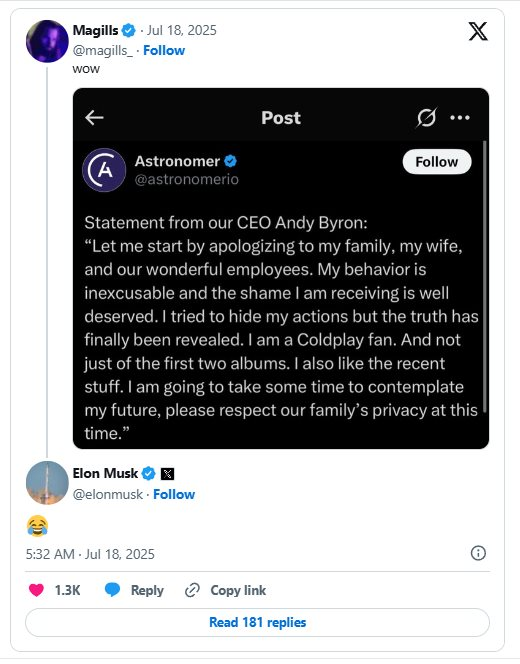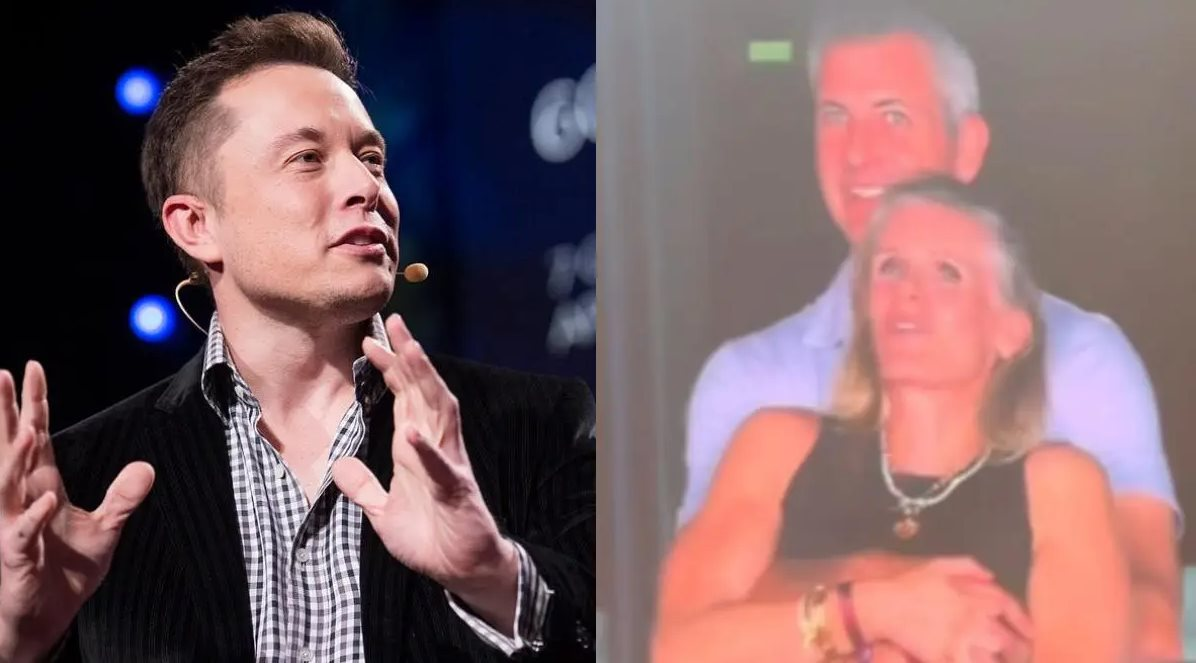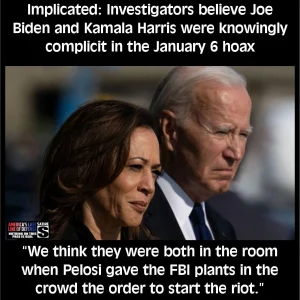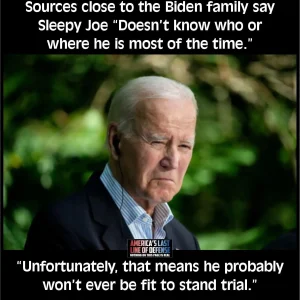In a whirlwind of social media frenzy and corporate drama, the so-called “Coldplaygate” scandal has taken the internet by storm, with billionaire Elon Musk adding fuel to the fire with a single, cheeky emoji. The controversy erupted at a Coldplay concert on July 17, 2025, at Gillette Stadium in Boston, Massachusetts, when the venue’s kiss cam zoomed in on Astronomer CEO Andy Byron and the company’s Chief People Officer, Kristin Cabot, sharing an intimate moment. The brief but conspicuous embrace, captured on a jumbo screen, sparked widespread speculation about an alleged affair, raising questions about workplace ethics, leadership accountability, and the power of social media to amplify personal missteps into global spectacles.
The incident unfolded during Coldplay’s Music of the Spheres World Tour, when frontman Chris Martin playfully commented, “Oh look at these two… either they’re having an affair or they’re very shy,” as the camera panned to Byron and Cabot. Their reactions—Byron ducking behind a barrier and Cabot covering her face—only fueled the crowd’s curiosity and amusement. The six-minute clip quickly spread across platforms like X, earning the moniker “Coldplaygate” and igniting debates about professionalism and personal boundaries in the corporate world. Social media users were quick to unearth details, noting that Byron is married to Megan Kerrigan, with whom he shares two children, while Cabot, recently divorced, had joined Astronomer in 2024.

As the video went viral, it triggered a cascade of memes, fake statements, and doctored screenshots, including a sarcastic “apology” falsely attributed to Astronomer’s official account. The mock post read, “We were caught in a moment. Love is data too,” prompting Elon Musk to respond with a laughing emoji, a move that amplified the online chatter. Musk’s reaction, though minimal, was interpreted by many as a playful jab at the situation, with one user commenting, “Even Elon can’t believe the HR pipeline.” His involvement, given his massive following and influence, turned a corporate blunder into a global talking point, highlighting the volatile mix of social media and executive behavior.
Astronomer, a Cincinnati-based data orchestration company valued at $1.3 billion, has remained largely silent on the matter, issuing only a brief statement about its commitment to “values and culture” and announcing an internal investigation. Both Byron and Cabot have been removed from the company’s leadership page, and unverified reports suggest that Kerrigan removed Byron’s surname from her social media profiles before making her accounts private. The lack of an official response from the executives has fueled further speculation, with some questioning whether Astronomer’s silence is a strategic move or a failure to address the scandal’s gravity.
The controversy has also revived scrutiny of Byron’s leadership. Former employees have labeled him a “toxic boss,” with one telling the New York Post that ex-colleagues are “laughing their ass off” at his public exposure. Cabot, who once praised Byron’s leadership and emphasized building trust in corporate culture, now faces irony as her professional image clashes with the viral footage. The incident has sparked broader conversations about workplace relationships, power dynamics, and the expectations placed on C-suite executives to uphold ethical standards.

For Astronomer, the scandal has thrust the company into an unwanted spotlight. Interim CEO Pete DeJoy acknowledged the “unusual and surreal” media attention but suggested that the publicity has made Astronomer a household name, albeit not in the way they would have preferred. The incident underscores the challenges tech companies face in managing personal conduct in an era where a single moment can be broadcast to millions. As “Coldplaygate” continues to dominate online discourse, it serves as a cautionary tale about the intersection of personal actions, professional responsibility, and the unrelenting power of social media to shape public perception.






